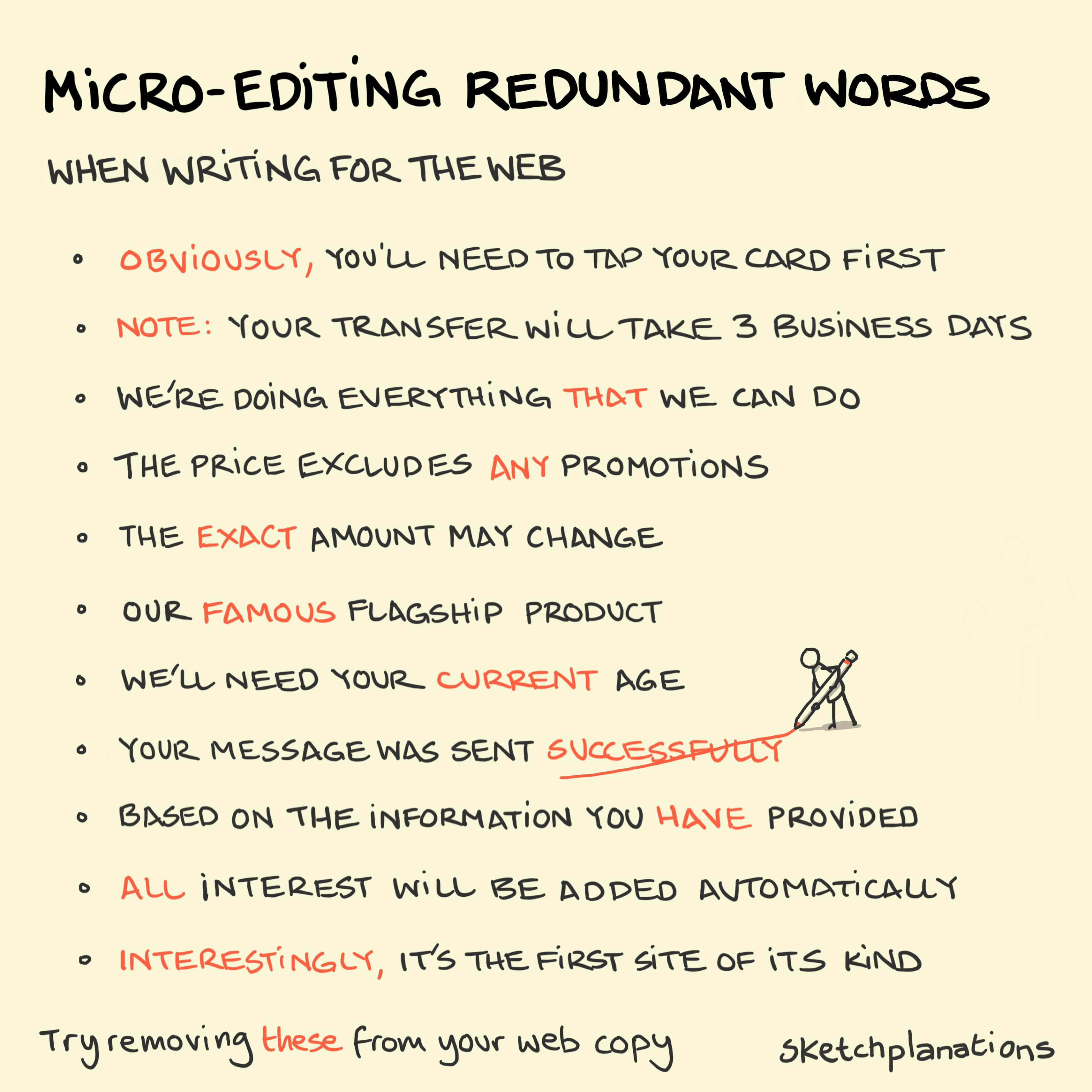Micro-editing redundant words

👇 Get new sketches each week
When writing for the web every word counts. We scan pages, instructions, and emails, sometimes skipping reading completely. So it's key to make sure that every word is doing a job. Over the years I find there are words that I routinely trim from web copy to save space and keep focus while preserving intent. While context always matters and these can't be cut everywhere, here are a handy few that regularly get the cut from web copy:
- Obviously, clearly, of course and the like — if it's obvious then don't write it, if it's not, then it's not relevant. If it's obvious to you and not to me then no need to make me feel stupid reading it
- Note, please note, note that, notice — we're noting it by writing it so trim the noise by leaving out reminders for readers to note things. If you really want someone to notice you can use the extra space from removing it by making it bigger or bolder
- That — can often be trimmed without changing the meaning of a sentence
- Any — very often superfluous
- Exact — very often makes no difference to a sentence
- Famous — if it's famous then maybe I've heard of it. If I haven't, then perhaps it's not so famous
- Current — if someone asks for my age or job then it's normal to assume they're not asking for what it used to be
- Successfully — it's always nice to trim a long word that doesn't add a lot
- Have — like 'that', it can often be removed without changing the meaning of a sentence
- All, total — when I take these out I often find it's the default assumption anyway
- Interestingly, surprisingly and the like — it may be interesting or surprising to you, but I think it's polite, and briefer, to let the reader decide if it's interesting or surprising for them
If you're writing for the web, try removing some and see if it still works.
Published

